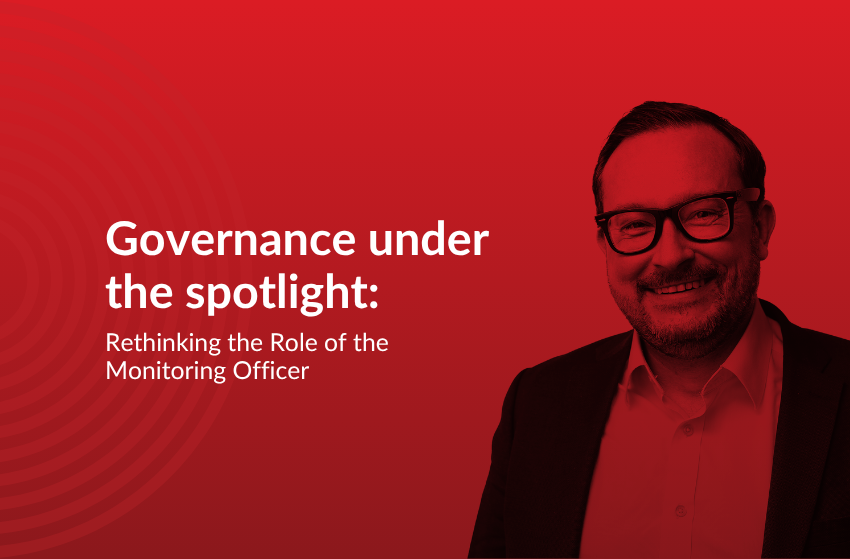As local government continues to evolve in response to financial pressures, service integration, and structural reform, the importance of robust governance has never been clearer. At the centre of this transformation is the Monitoring Officer, a statutory role that is increasingly being redefined to meet the demands of modern leadership.
Legal Leadership with Strategic Impact
Across the sector, councils are reassessing their legal functions, not simply as compliance mechanisms, but as strategic enablers. The shift in job titles from “Borough Solicitor” to “Chief Legal Officer” or “Director of Law and Governance” reflects a deeper change: a desire for legal leaders who can shape policy, influence strategy, and contribute meaningfully to organisational direction.
This is not a superficial rebranding. It signals a recognition that legal leadership must be embedded within the council’s core decision-making processes, offering insight and foresight in equal measure.
From Compliance to Collaboration
When recruiting Section 151 Officers, councils often speak of the need for a “business partner”, someone who facilitates rather than polices. Increasingly, this same expectation is being applied to Monitoring Officers. Councils want legal professionals who can navigate complexity, unlock solutions, and support innovation while safeguarding governance.
The Monitoring Officer of today is expected to be a collaborative problem-solver, not just a gatekeeper. Their role is to help councils achieve their ambitions within the bounds of legality, offering alternative pathways rather than simply identifying barriers.
Navigating Complexity with Confidence
The governance landscape is more intricate than ever. Councils operate through a mix of wholly owned subsidiaries, shared services, and cross-sector partnerships. These arrangements demand legal leaders who can think beyond their specialism, engage across disciplines, and manage risk with agility.
While subject matter expertise remains vital, the ability to ask the right questions, draw on external insight, and lead with strategic clarity is what sets exceptional Monitoring Officers apart.
Leadership, Communication, and Influence
Effective communication is central to the role. Monitoring Officers must translate complex legal frameworks into clear, actionable advice for diverse audiences. They must be approachable, resilient, and capable of challenging constructively when required.
Increasingly, councils are elevating the Monitoring Officer to form a leadership triumvirate alongside the Chief Executive and Section 151 Officer. This reflects a growing understanding that legal leadership is integral to organisational resilience, ethical governance, and public trust.
Looking Ahead
The role of the Monitoring Officer is changing, and rightly so. As councils face new challenges and opportunities, they need legal leaders who are strategic, versatile, and solutions-oriented. At GatenbySanderson, we see this evolution not as a risk, but as a remarkable opportunity to unlock leadership potential and drive meaningful impact across the public sector.
Original article featured in the MJ Magazine.
Author:
Seb Lowe
Partner – Local Government practice,
GatenbySanderson
Find out more about the Local Government practice at GatenbySanderson.
